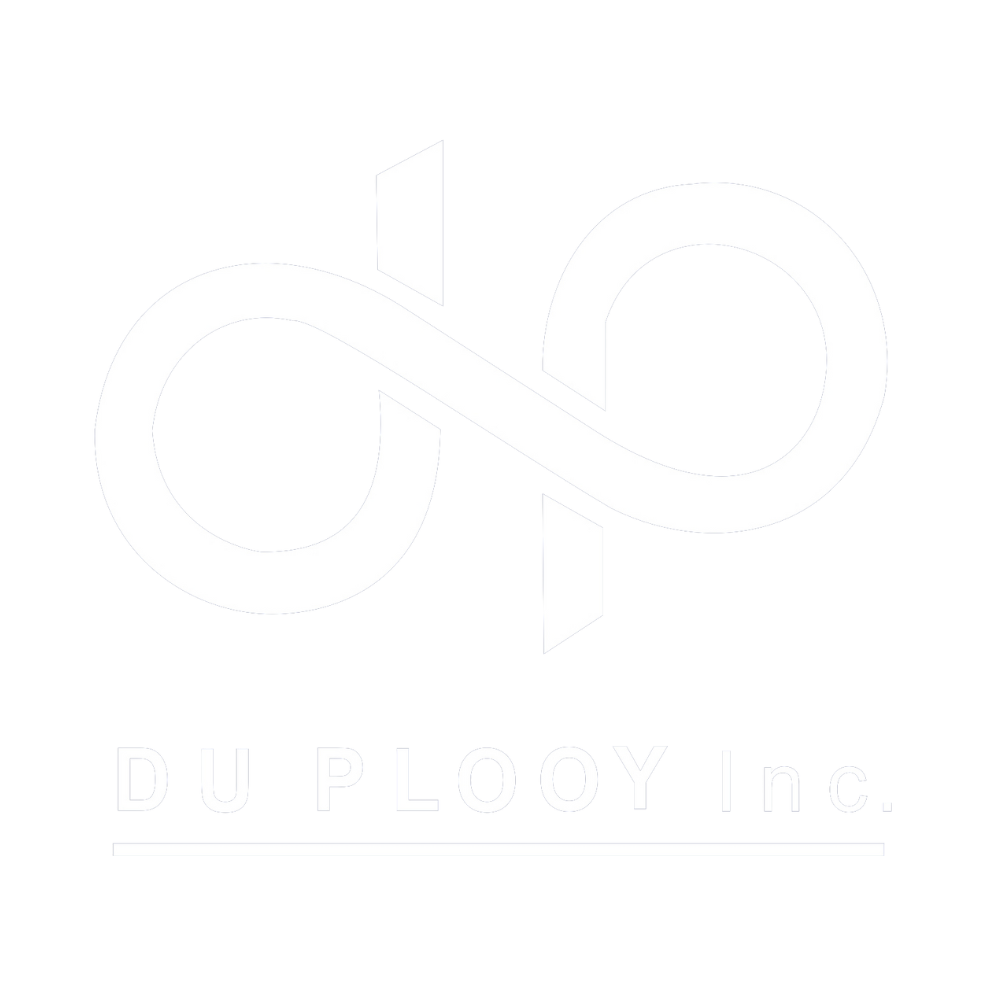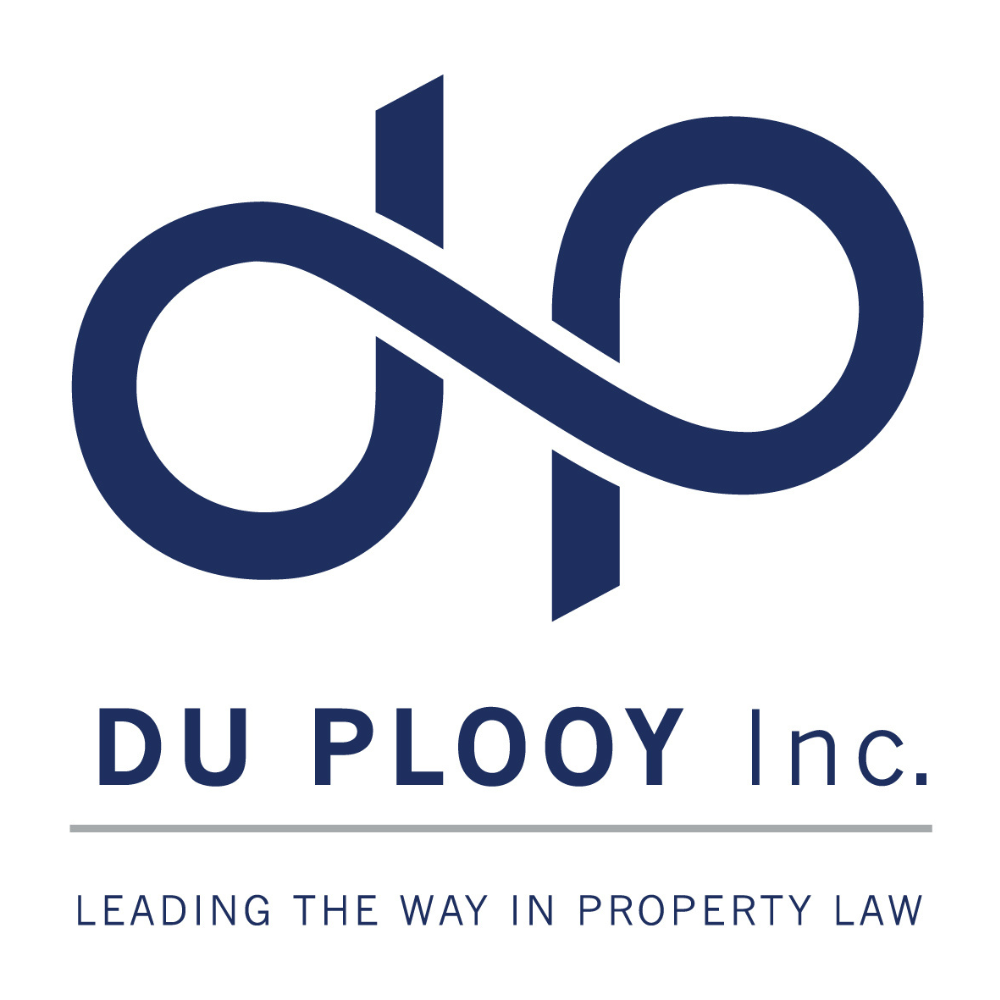Attorneys | Notaries | Conveyancers
Leading the way in
Property Law for
20 years.

Our Blog

Understanding Property Transfer Costs in South Africa: What Buyers Need to Budget For
Buying a home is exciting! But beyond the purchase price and your home loan, there are crucial extra costs. Budgeting for these upfront ensures a smooth, stress-free transaction.
At Du Plooy Inc., we believe in clear communication. Let's break down the main costs buyers face when purchasing property.
Key Costs to Budget For:
1. Transfer Duty (SARS Tax)
This is a tax paid to SARS on property acquisition, calculated on a sliding scale based on the purchase price.
Who pays? The buyer.
Exemption: Properties R1,210,000 or less are exempt (as of April 1, 2025). For properties above the threshold, the duty is calculated as a percentage of the value exceeding the threshold, with higher percentages for more expensive properties.
VAT vs. Transfer Duty: If buying a new property from a VAT-registered developer, you pay VAT (usually included in price) instead of transfer duty.
2. Conveyancer Fees (Legal Fees for Transfer)
These are paid to the transferring attorney (like Du Plooy Inc.) for legally transferring the property into your name.
Who pays? The buyer.
Regulation: Fees are guided by the Legal Practice Council (LPC) tariff, based on the property's purchase price.
What's included? Drafting documents, liaising with banks and the Deeds Office, FICA compliance, and managing the overall legal transfer. Small disbursements (Deeds Office fees, etc.) are also included.
3. Bond Registration Costs (If You Have a Home Loan)
If you're getting a home loan, these cover the legal process of registering that loan against the property.
Who pays? The buyer is responsible for these costs, which are paid to the bond registration attorney (appointed by your bank).
Components: These costs include the bond registration attorney's fees (also based on a sliding scale according to the bond amount), Deeds Office fees for registering the bond, and a bank initiation fee (a once-off fee charged by the bank for processing your loan).
Fixed Fees: While scaled, these fees are also regulated and depend on the value of your bond.
Other Potential Costs:
Also consider these smaller, but important, expenses:
Bank Valuation Fee: Your bank might charge a fee to value the property before approving the loan.
Occupational Rent: If you move into the property before the transfer is registered, you'll likely pay occupational rent to the seller.
Pro-rata Rates & Levies: You may be required to pay an advance portion of municipal rates/taxes or complex levies to ensure the accounts are clear for transfer.
Homeowners Association (HOA) Consent Fee: If the property is in an estate or complex with an HOA, there might be a small fee to obtain their consent for the transfer.
Planning Your Budget
It's clear that the total additional costs can add a significant amount to your property purchase. To avoid any surprises, we highly recommend:
Getting Pre-Approved: Understand what home loan amount you qualify for.
Using a Cost Calculator: Many online tools (and your conveyancer) can provide an estimate of your total transfer and bond costs based on the property price.
Consulting Your Conveyancer Early: The best way to get an accurate breakdown is to speak to a conveyancing attorney directly.
At Du Plooy Inc. we provide clear, professional guidance for your property purchase.
Ready to budget confidently for your new home? Contact Du Plooy Inc. today for expert advice on property transfer costs.
Newsletters
Stay ahead of the curve with Du Plooy Inc.'s legal newsletters! Our concise updates deliver insights on property law, keeping you informed on the latest regulations and rulings.
2025
May
2024
Attorneys | Conveyancers | Notaries
Leading
the way in Property Law
for 20 years.

Our Blog

Understanding Property Transfer Costs in South Africa: What Buyers Need to Budget For
Buying a home is exciting! But beyond the purchase price and your home loan, there are crucial extra costs. Budgeting for these upfront ensures a smooth, stress-free transaction.
At Du Plooy Inc., we believe in clear communication. Let's break down the main costs buyers face when purchasing property.
Key Costs to Budget For:
1. Transfer Duty (SARS Tax)
This is a tax paid to SARS on property acquisition, calculated on a sliding scale based on the purchase price.
Who pays? The buyer.
Exemption: Properties R1,210,000 or less are exempt (as of April 1, 2025). For properties above the threshold, the duty is calculated as a percentage of the value exceeding the threshold, with higher percentages for more expensive properties.
VAT vs. Transfer Duty: If buying a new property from a VAT-registered developer, you pay VAT (usually included in price) instead of transfer duty.
2. Conveyancer Fees (Legal Fees for Transfer)
These are paid to the transferring attorney (like Du Plooy Inc.) for legally transferring the property into your name.
Who pays? The buyer.
Regulation: Fees are guided by the Legal Practice Council (LPC) tariff, based on the property's purchase price.
What's included? Drafting documents, liaising with banks and the Deeds Office, FICA compliance, and managing the overall legal transfer. Small disbursements (Deeds Office fees, etc.) are also included.
3. Bond Registration Costs (If You Have a Home Loan)
If you're getting a home loan, these cover the legal process of registering that loan against the property.
Who pays? The buyer is responsible for these costs, which are paid to the bond registration attorney (appointed by your bank).
Components: These costs include the bond registration attorney's fees (also based on a sliding scale according to the bond amount), Deeds Office fees for registering the bond, and a bank initiation fee (a once-off fee charged by the bank for processing your loan).
Fixed Fees: While scaled, these fees are also regulated and depend on the value of your bond.
Other Potential Costs:
Also consider these smaller, but important, expenses:
Bank Valuation Fee: Your bank might charge a fee to value the property before approving the loan.
Occupational Rent: If you move into the property before the transfer is registered, you'll likely pay occupational rent to the seller.
Pro-rata Rates & Levies: You may be required to pay an advance portion of municipal rates/taxes or complex levies to ensure the accounts are clear for transfer.
Homeowners Association (HOA) Consent Fee: If the property is in an estate or complex with an HOA, there might be a small fee to obtain their consent for the transfer.
Planning Your Budget
It's clear that the total additional costs can add a significant amount to your property purchase. To avoid any surprises, we highly recommend:
Getting Pre-Approved: Understand what home loan amount you qualify for.
Using a Cost Calculator: Many online tools (and your conveyancer) can provide an estimate of your total transfer and bond costs based on the property price.
Consulting Your Conveyancer Early: The best way to get an accurate breakdown is to speak to a conveyancing attorney directly.
At Du Plooy Inc. we provide clear, professional guidance for your property purchase.
Ready to budget confidently for your new home? Contact Du Plooy Inc. today for expert advice on property transfer costs.
Newsletters
Stay ahead of the curve with Du Plooy Inc.'s legal newsletters! Our concise updates deliver insights on property law, keeping you informed on the latest regulations and rulings.
2025
May
2024
Trusted Expertise, Proven Results.
We've helped over 50,000 clients achieve success.

Trusted Expertise,
Proven Results.
We've helped over 50,000 clients
Achieve Success.

DU PLOOY Inc
Training Centre
Are you an Estate Agent or Mortgage Originator?
The KVV Training Centre is a platform for continued learning and education. This Centre is especially focused on Estate Agents and Mortgage Originators who wish to broaden their knowledge about the property industry and the legal implications of the elements associated with it.
Our directors are more than happy to do onsite training at your offices, in which case the material in the training centre can be used to reaffirm knowledge obtained during training. Alternatively, the Training Centre provides a welcome alternative to the learner who does not have time to sit in a classroom during the day and wishes to do training in his own time and in the comfort of his own home or office.
Certain of the programmes provide for a small knowledge test at the end, in order to obtain and print an Attendance Certificate as required by the PPRA.
Johannesburg
Monday - Friday: 8am to 5pm
Saturday & Sunday: Closed
Hermanus
Monday - Friday: 8am to 4.30pm
Saturday & Sunday: Closed
Follow us

Johannesburg
Monday - Friday: 8am to 5pm
Saturday & Sunday: Closed
Hermanus
Monday - Friday: 8am to 4.30pm
Saturday & Sunday: Closed
Follow us
© Du Plooy Inc 2026
© Du Plooy Inc 2026
